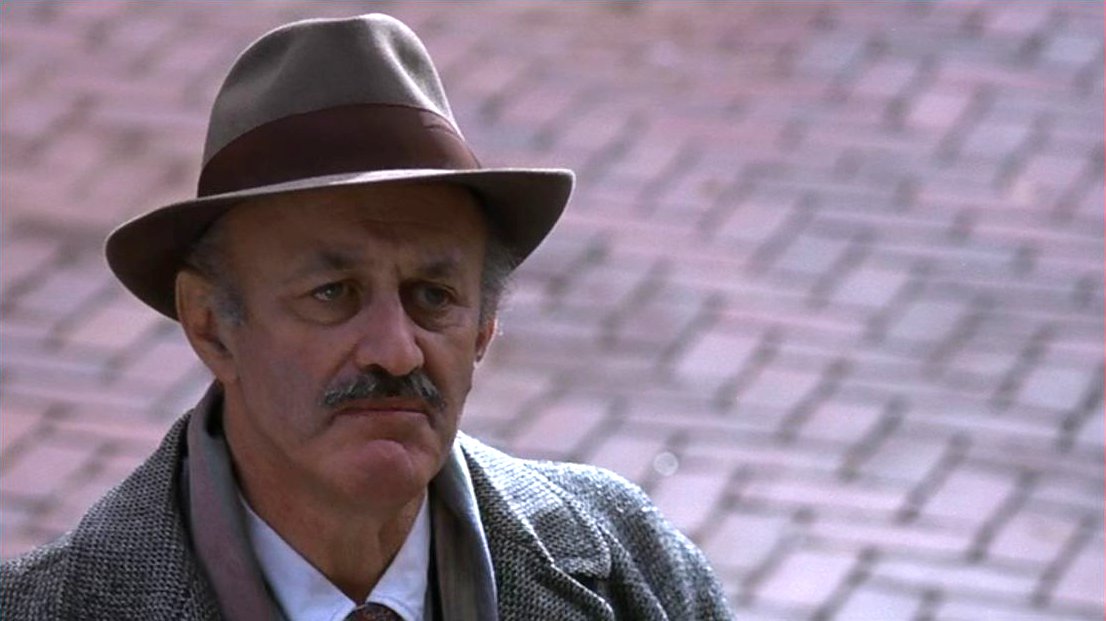A sign the times are a changing. In an increasingly secular society, and adding to that the fact that there's increasing number of incidents akin to that covered by the Spotlight team, means that in the media, overall, preists are getting a bad rep. Some of them certainly deserve it, undoubtedly, and it's terrifying and horrible to see how some abuse their power. But not all of them do. And truth be told, I think the negative portrayal of priests overwhelmingly nowadays does strike me as a bit much. Which is why I kind of appreciate a film like The Exorcist all the more for its positive portrayal of priests as not all-holy, all-mighty figures, but human beings with the will to do good.
We open the film with one of these priests, and the titular exorcist, Max von Sydow's Father Lankester Merrin. Watching the film for the first time, I was taken aback by the fact that this was a 1970s film, and yet ol' Max looked exactly like he does nowadays. That's testament to the fantastic makeup by Dick Smith, who did a similarly superlative job on F. Murray Abraham as old Salieri in Amadeus. It's just the tip of the iceberg in terms of the makeup effects in the film, but it combines with von Sydow's performance and William Peter Blatty's patient, nuanced screenplay to craft quite the subtle opening sequence where we get seamlessly delivered exposition about Pazuzu, the demon who will come to haunt the film.
The film takes a while to get going in the best possible way, as we're presented in Georgetown, Washington, with the simple life of an actress mother Chris (Ellen Burstyn) and her daughter Regan (Linda Blair). We're not immediately thrown into gloom and doom, the film's opening had sufficient gravitas to allow a bit of breathing room. There's a bit of broad comedy involving Chris' director, the quirky Burke Dennings (Jack MacGowran), and we get some insight into Chris and Regan as characters before things, so to speak, go to shit. It's an interesting dynamic in that there's nothing particularly overt in the film's direction to show it's a loving mother-daughter relationship, instead it's depicted in a realistic fashion, as is Chris' atheism; the film doesn't hit you over the head with either element. It's just there.
Regan's predicament brings into the fray, alongside von Sydow's Merrin, several other figures into Regan's life. One is Lee J. Cobb's police detective Kinderman. What I kind of love about the writing behind the role of Kinerman is that Blatty never makes him a fool even though the film's events are way out of his element. Kinerman acts as sort of the audience's avatar within the story, a levelheaded figure with a slighty cynical edge. I like how his character is utilized to interact with characters like Chris, who's increasingly emotional and poignant through Burstyn's fantastic performance. Cobb's performance is a breath of comedic relief and efficient exposition through the film.
Then there's the priests of Father Joseph Dyer (Father William O'Malley) who is the most straightforward, pious figure in the film; and Father Damien Karras (Jason Miller) who is suffering a crisis of faith after having lost his mother a few years previous. One of the most powerful elements of the film that put it above simply being a great scary horror is the emotional backdrop of Karras' journey. The whole duration of the film consists of him doubting his faith in God and being haunted by his past griefs. The growing realization of a man snapping out of his stupor and confronting the demon Pazuzu firstly with fear, then with anger, and finally with ultimate courage, is extremely powerful and makes the ending of The Exorcist work as well as it does.






Excellent film and although certainly very effective in terms of the "scares" department, it balances its tone beautifully with the bit of comedy, thanks to Cobb, and a real sense of the human element behind the supernatural story.
ReplyDeleteAbsolutely amazing film, and Jason Miller's performance is one of the greatest ever, period.
ReplyDeleteTerrific movie, great review.
ReplyDelete